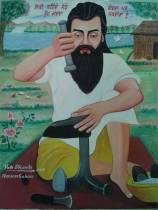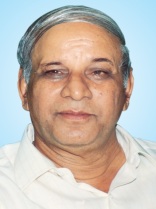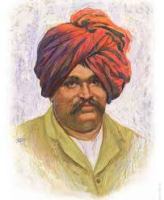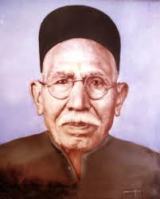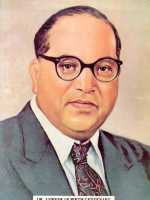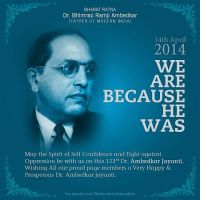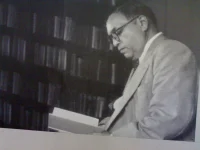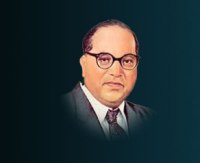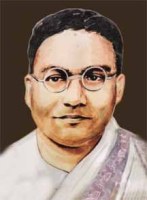Written by Nijam Gara
Whenever Uttar Pradesh and/or Bihar go to polls, the media is agog with the term ‘identity politics’. The shrill campaign coverage of mainstream media paints identity politics as being inimical to egalitarian society and destructive to the supposed holy-cow of Indian democracy. A well-known Gandhian has recently written in a National English newspaper that the “U” in Uttar Pradesh stands for ungovernable mainly because it is ridden with the scourge of identity politics. He longs for the glorious past of Uttar Pradesh in an eerie similarity to the ‘Make America great again’ slogan that we are all too familiar with now. Thus he equates the rise of bahujan leaders of Uttar Pradesh with regression of the prospects of the state.
 This narrative needs to be dissected to comprehend the ire of such Gandhians and other media pundits. First, how about a counter-narrative? Today, in 2017, almost 70 years after the birth of a nation called India, but more importantly, more than three thousand years after Vedic ‘civilization’ spread over this land, Uttar Pradesh is the only state in the Union of India where a freestanding dalit political party stands a chance at the hustings to rule the state. And Uttar Pradesh is only one of 2 states (the other being Bihar) where OBCs have taken center-stage in ruling unopposed for the past 2 decades. Leaders from the bottom of the Vedic step-ladder such as Mayawathi (dalit), Nitish Kumar, Lalu Prasad and Mulayam Singh Yadav (all OBCs) became forces to reckon with only as a result of assertion of their backward identity. It is only because they raised their banners in the name of their oppressed background that even the National parties today are forced to sing OBC and dalit tune. While it is easy for self-proclaimed political pundits to brush off bahujan parties with the deprecating label of ‘identity politics’, millions of people from all over India that hail from these sections can vouch for the dignity that a Lalu Prasad, a Mayawathi or a Kanshi Ram brought to them by standing up to oppression and bringing them in to the mainstream of political discourse. There is no means to measure the confidence that these leaders and parties instill in the bahujans across the country. In fact, it is a travesty that other states have not seen such an upsurge in bahujan assertion. To put things in historical context, not too long ago, the castes that they represent were banished to menial jobs that savarna hindus would abhor to even dream of, never had the right to own land or even stand next to a savarna but today have risen to rule themselves and the savarnas too.
This narrative needs to be dissected to comprehend the ire of such Gandhians and other media pundits. First, how about a counter-narrative? Today, in 2017, almost 70 years after the birth of a nation called India, but more importantly, more than three thousand years after Vedic ‘civilization’ spread over this land, Uttar Pradesh is the only state in the Union of India where a freestanding dalit political party stands a chance at the hustings to rule the state. And Uttar Pradesh is only one of 2 states (the other being Bihar) where OBCs have taken center-stage in ruling unopposed for the past 2 decades. Leaders from the bottom of the Vedic step-ladder such as Mayawathi (dalit), Nitish Kumar, Lalu Prasad and Mulayam Singh Yadav (all OBCs) became forces to reckon with only as a result of assertion of their backward identity. It is only because they raised their banners in the name of their oppressed background that even the National parties today are forced to sing OBC and dalit tune. While it is easy for self-proclaimed political pundits to brush off bahujan parties with the deprecating label of ‘identity politics’, millions of people from all over India that hail from these sections can vouch for the dignity that a Lalu Prasad, a Mayawathi or a Kanshi Ram brought to them by standing up to oppression and bringing them in to the mainstream of political discourse. There is no means to measure the confidence that these leaders and parties instill in the bahujans across the country. In fact, it is a travesty that other states have not seen such an upsurge in bahujan assertion. To put things in historical context, not too long ago, the castes that they represent were banished to menial jobs that savarna hindus would abhor to even dream of, never had the right to own land or even stand next to a savarna but today have risen to rule themselves and the savarnas too.
The other aspect of demonization of identity politics that needs to be dealt with head-on is the canard that directly ties it to lack of ‘development’ or rather regression and violent crime. Such a blatant lie assumes that Uttar Pradesh and Bihar were once prosperous states where everybody lived peacefully. But the reality is that these regions (just like any other state in India) were under the stranglehold of oppressor castes both before and after Independence. As bahujan forces started asserting themselves and assuming political prominence, the oppressor castes obviously did not just stand as mute spectators. The rise of ruthless militant armies such as Ranvir sena that claimed hundreds of bahujan lives in defence of upper caste landlords and the fomentation of hysterical Mandir-Masjid emotions that extinguished several hapless victims were all part of the nefarious schemes sponsored by the same oppressor classes that stood to lose the most in the light of bahujan assertion. To ignore the role that these issues played in dragging down Uttar Pradesh and Bihar in the realm of ‘development’ throughout the ‘90s and also well in to the early 2000s is disingenuous. And of course the bahujan parties, RJD, SP and BSP gave shelter to criminal elements. But to put the blame solely on them and to suggest that their identity politics have somehow led to ‘Jungle Raj’ (a term that is derogatory in itself) is a wilful act of defamation against bahujan assertion. It is also important to realize that crime often is a by-product of failure of society. The rise of Phoolan devi, herself a quintessential example of feminist and bahujan assertion is an example of the ramifications of counter-violence in the face of brute oppression. The experts that leave no stone unturned in blaming these parties are practically mum when it comes to violence propagated by upper caste faction feudalism in Rayalaseema (Andhra Pradesh) by both Congress and Telugudesam party throughout the 1980s and 1990s, the hooliganism of elements such as Gali Janardhan Reddy of the BJP (Karnataka), the communist violence in West Bengal when CPM was in power for decades and scores of caste-based violent skirmishes perpetrated by some parties in Tamil Nadu in the garb of Dravidian outfits. If Uttar Pradesh has become ungovernable because of identity politics, where was governance in Gujarat in 2002 when rioters were ‘allowed to vent their anger’ on streets murdering muslims & marauding and pilfering street after street? Where was governance in Kashmir in 2016 when hundreds of protesters including children were blinded by pellet guns? Where was governance in Amaravathi (Andhra Pradesh) when thousands of acres of fertile agricultural land were grabbed from small-scale farmers in the name of development?
While rhetoric tends to suggest that Uttar Pradesh and Bihar got worse under bahujan rule, facts belie such claims. There is undoubtedly room for improvement but the human development index in Uttar Pradesh went from 0.314 in 1991 to 0.388 in 2001 to 0.54 in 2015. In Bihar, it went up from 0.22 in 1981 to 0.536 in 2015. What the analysts will not write about is the fact that both states were well below national average even in the 1980s when ‘identity politics’ were still a distant dream. As the media berated his tenure as Chief Minister, the inimitable Lalu, a poster-boy of identity politics turned heads as Union Minister when he successfully steered the Railways in to profits without increasing the prices for passengers’ tickets during 2004-2009. So much was the effect of his development prowess that he was invited by the same universities and business schools that liberal economists swear by, to give lectures on efficient management.
The day when an independent dalit force emerges to the level of ruling a ‘developed’ state such as Kerala, Tamil Nadu or self-proclaimed developed states such as Gujarat or Andhra Pradesh is nowhere in sight while such a fete has already been achieved in the ‘ungovernable’ Uttar Pradesh. In summary, critics can croon all they want about the bane of ‘identity politics’ but what these leaders of UP and Bihar have really done are assertive politics that in fact need to be replicated all over the country to bring about true development to bahujans languishing as vote banks in other states still ruled by leaders hailing from financial powerhouses but numerical minorities.





